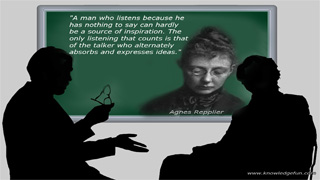Here is perhaps the place to say that all narcotics are in such cases, absolutely pernicious.
They may bring sleep at the time, but eventually they lose their effect, and leave the nervous system in a state of strain which cannot be helped by anything but time, through much suffering that might have been avoided.
When we are not necessarily overtired but perhaps only a little tired from the day's work, it is not uncommon to be kept awake by a flapping curtain or a swinging door, by unusual noises in the streets, or by people talking. How often we hear it said, "It did seem hard when I went to bed tired last night that I should have been kept awake by a noise like that — and now this morning, I am more tired than when I went to bed."
The head nurse in a large hospital said once in distress: "I wish the nurses could be taught to step lightly over my head, so that they would not keep me awake at night." It would have been a surprise to her if she had been told that her head could be taught to yield to the steps of the nurses, so that their walking would not keep her awake.
It is resistance that keeps us awake in all such cases. The curtain flaps, and we resist it; the door swings to over and over again, and we resist it, and keep ourselves awake by wondering why it does not stop; we hear noises in the street that we am unused to, especially if we are accustomed to sleeping in the stillness of the country, and we toss and turn and wish we were in a quiet place. All the trouble comes from our own resistance to the noise, and resistance is nothing but unwillingness to submit to our conditions.
If we are willing that the curtain should go on flapping, the door go on slamming, or the noise in the street continue steadily on, our brains yield to the conditions and so sleep naturally, because the noise goes through us, so to speak, and does not run hard against our unwillingness to hear it.
There are three facts which may help to remove the resistance which naturally arises at any unusual sound when we are tired and want to get rest.
One is that in almost every sound there is a certain rhythm. If we yield to the sound enough to become sensitive to its rhythm, that, in itself, is soothing, and what before was keeping us awake now helps us to go to sleep. This pleasant effect of finding the rhythm in sound is especially helpful if one is inclined to lie awake while travelling in sleeping cars. The rhythm of sound and motion in sleeping cars and steamers is, in itself, soothing. If you have the habit of feeling as if you could never get refreshing sleep in a sleeping car, first be sure that you have as much fresh air as possible, and then make up your mind that you will spend the whole night, if necessary, in noticing the rhythm of the motion and sound of the cars.

If you keep your mind steadily on it, you will probably be asleep in less than an hour, and, when the car stops, you will wake only enough to settle comfortably into the sense of motion when it starts again. It is pleasant to notice the gentleness with which a good engineer starts his train at night. Of course there is a difference in engineers, and some are much more gentle in starting their engines than others, but the delicacy with which the engine is started by the most expert is delightful to feel, and gives us many a lesson on the use of gentle beginnings, with other things besides locomotive engines, and especially in our dealings with each other.
The second fact with regard to yielding, instead of resisting, in order to get to sleep is that listening alone, apart from rhythm, tends to make one sleepy, and this leads us at once to the third fact, that getting to sleep is nothing but a healthy form of concentration.
If true concentration is dropping everything that interferes with fixing our attention upon some wholesome object, it means merely bringing the brain into a normal state which induces sleep when sleep is needed. First we drop everything that interferes with the one simple subject, and then we drop that, and are unconscious.
Of course it may take some time to make ourselves willing to submit to an unusual noise if we have the habit of feeling that we must necessarily be disturbed by it, and, if we can stop the noise, it is better to stop it than to give ourselves unnecessary tasks in non-resistance.
Then again, if we are overtired, our brains are sometimes so sensitive that the effect of any noise is like that of being struck in a sore spot, and then it is much more difficult to bear it, and we can only make the suffering a little less by yielding and being willing that it should go on. I cannot go to sleep while some one is knocking my lame arm, nor can I go to sleep while a noise is hitting my tired brain; but in such cases we can give up expecting to go to sleep, and get a great deal of rest by using our wills steadily not to resist; and sometimes, even then, sleep will come upon us unexpectedly.











